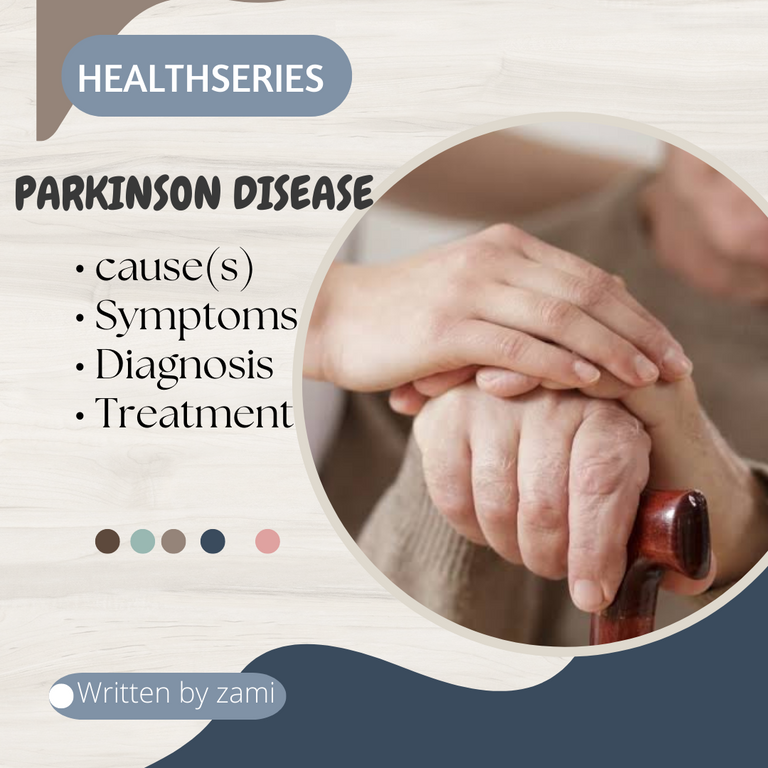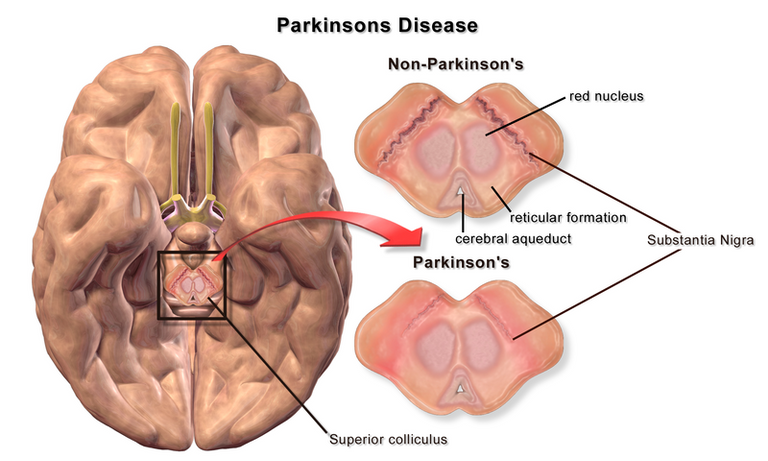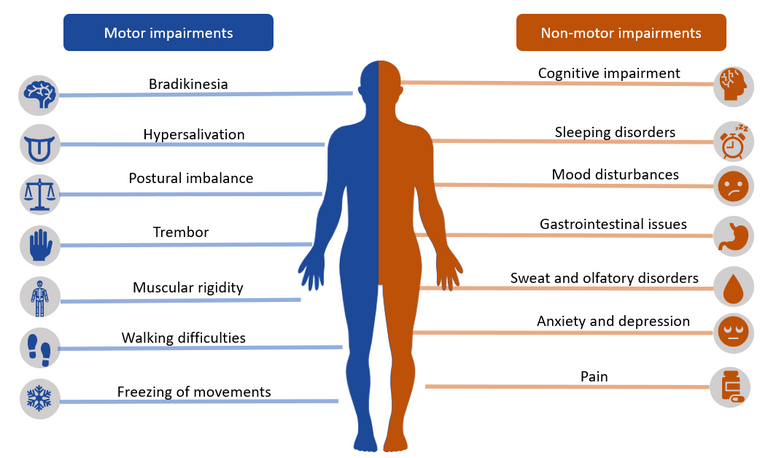
Image designed on canva
Good day everyone, a warm welcome to another episode on health series, its my pleasure doing this again. Last episode was really informative as I wrote exhaustively on the disease known as Tuberculosis (TB), If you had missed it, you can still access it here on my blog.
Today I'll be writing on another common disease condition, one that mostly affects the elderly causing several neurological symptoms like tremor and loss of balance. This disease is known as parkinson disease.
what is Parkinson disease

Image source
Parkinson disease is a neurological disorder characterised by slow movement, difficulty swallowing and slurred speeches. PD starts slowly when the region of the brain that produces dopamine is damaged, this damage subsequently leads to a reduction in dopamine production, hence resulting in parkinsonism.
Dopamine is a neurotransmitter (a chemical that send signals from the brain to the nerves), it partially controls our ability to think, plan, move and focus. When its level in the brain becomes very low, it leads to a whole range of issues one of it being parkinson disease.
According to world health organisation, parkinson disease has the highest rate of disability and death when compared to other neurological disorders. In 2019 alone, world health organisation (WHO) recorded about 8.5 million cases of parkinson disease globally and about 329,000 cases resulted in death.
Parkinson disease manifests slowly and progressively till a greater number of the dopaminergic producing cells is damaged. Oftentimes, doctors do mistake it for arthritis due to similarity of symptoms. PD has no cure but can be well managed with medications.
Symptoms

Image source
The symptoms of parkinson disease varies depending on the individual and the severity.
Some of it symptoms include;
- Tremor, especially on one hand
- Difficulty swallowing
- Muscular stiffness
- Slowed movement (bradykinesis)
- Difficulty writing
- Impaired posture
- Slurred speeches
- Dementia
- Croaking or quivering voice
- Lightheadedness
- Abrupt facts
- Blurred vision
- Stooped Posture
Causes
As I've stated earlier in the article, the reason for the onset of parkinson disease is due to damage of dopamine producing nerve cells in the brain. However, the exact cause of dopaminergic cell death is unknown, some scientist have traced it to a number of environmental factors as well as genetic factor.
Several factors also play various roles in the onset of parkinson's disease, some of them include;
- Presence of lewy bodies in the brain
- People older than 60 years
- Constant exposure to chemicals like pesticides and herbicides
- Family history of the disease
- Corticobasal degeneration
- Certain class of drugs like calcium blockers.
Diagnosis
The diagnosis for parkinson disease is usually done by a qualified medical personnel through any of the following medium.
- Blood test: This test is carried out to check for the presence of a particular protein that is associated with parkinson disease.
- DaTscan: this is a type of imaging scan that helps the doctor view the level of dopamine in the brain.
- Genetic test: This test can help identify parkinson in gene of people with history of the disease.
Treatment
Parkinson disease cannot be cured, however, the symptoms can be effectively managed with drugs. Sometimes, surgery might be required in severe cases.
Some of the common medications for the management of PD includes, carbidopa-levodopa (Sinmet), aporemorphine, pramipexole, entacapone, etc. This drugs are designed to increase the level of dopamine in the brain which is the principal reason for the onset of PD.
CONCLUSION
Parkinson disease is a very disturbing neurological disorder, It starts gradually and and gets worst with time. Individuals above 60 years of age should always be at alert and watch out for any symptoms of PD. In addition, endeavor to go for routine check ups to maintain and keep a healthy body. Like I always say, early diagnosis is the key to the effective management of any disease condition.
Thanks for reading and have yourself a lovely day. For any question or submission, make use of the comment box.
Originally posted on my blog on steemit.